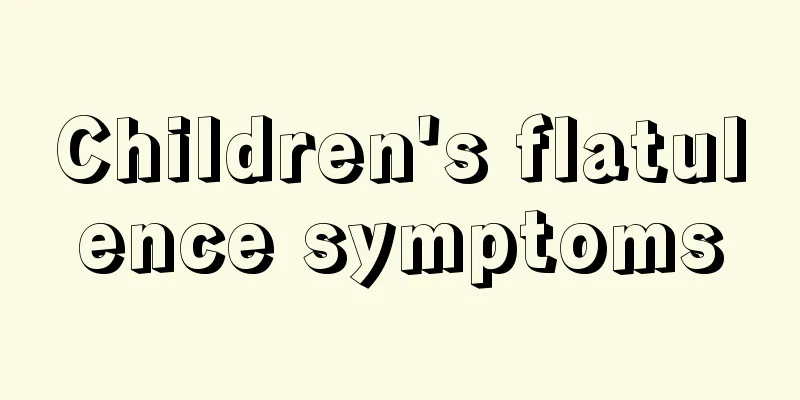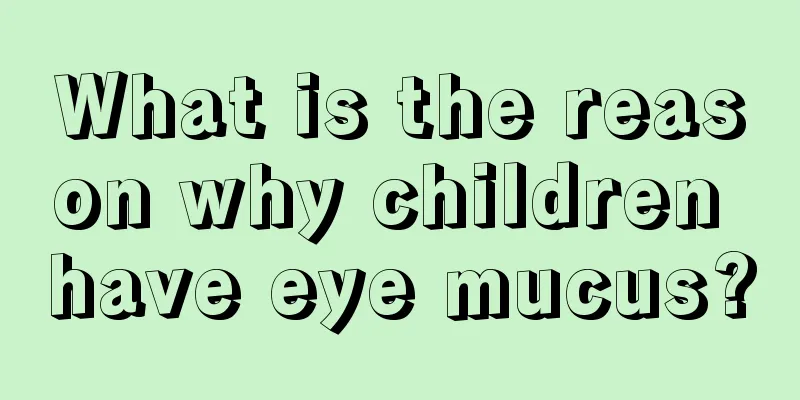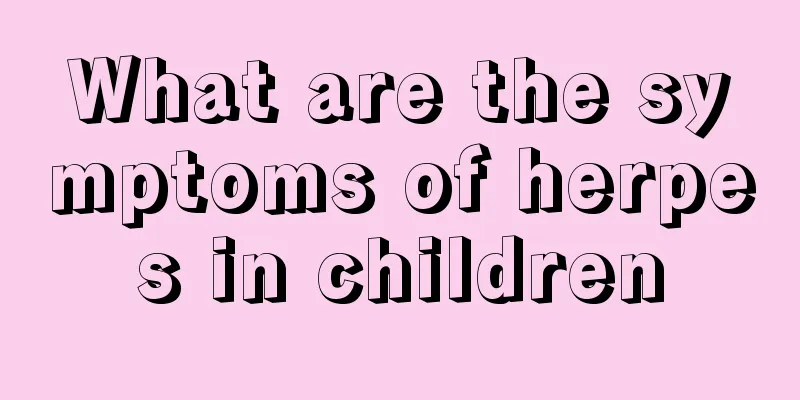Children's flatulence symptoms

|
Bloating is a condition that many children will experience. There are many reasons for this condition. It may be caused by stomach disease, it may be caused by ingesting gas when eating, or it may be caused by eating food that is more likely to produce gas. There are many symptoms of bloating in children, such as gurgling stomach, frequent farting and vomiting, etc. Below we will introduce in detail the symptoms of bloating in children. Symptoms of bloating in baby Physiological abdominal distension symptoms in babies 1. The baby's stomach will make gurgling sounds and the baby will fart frequently. 2. After feeding, the baby's abdomen is often slightly or more obviously bulged, and sometimes there is milk regurgitation, and the baby will be restless and cry. 3. The baby's abdominal wall is stiff, but no lump can be felt. 4. No vomiting, good activity, and normal weight gain. If the baby only has the above symptoms, then it should be physiological abdominal distension. Parents do not need to worry too much. Just adjust the diet, pay attention to daily details, and rub the baby's belly more and the symptoms will gradually ease. Symptoms of pathological abdominal distension in babies 1. Abdominal distension is accompanied by frequent vomiting, shortness of breath, loss of appetite, weight loss, and even fever. 2. There is tenderness in the abdomen, the abdomen is bloated and tight, the abdominal wall is hard, shiny, and red, and something like a lump can be felt in the abdomen. 3. Accompanied by jaundice, white stools, bloody stools, and tarry stools. If your baby has the above symptoms, it is likely to be pathological diarrhea and he needs to be sent to the hospital for diagnosis and treatment immediately. What disease does the specific pathological abdominal distension symptom correspond to? 1. Abdominal distension and abdominal pain: When accompanied by severe abdominal pain, the possibility of acute cholecystitis, pancreatitis, intestinal obstruction, acute peritonitis, mesenteric vascular embolism or thrombosis, intestinal torsion, intussusception and other diseases should be considered. 2. Abdominal distension accompanied by vomiting: It is more common in pyloric obstruction, intestinal obstruction and other diseases, and secondly in hepatobiliary tract and pancreatic diseases. Functional diseases such as functional dyspepsia and aerophagia can sometimes also cause vomiting. 3. Abdominal distension with belching: common in aerophagia, functional dyspepsia, chronic atrophic gastritis, gastroptosis, ulcer disease and pyloric obstruction, etc. 4. Abdominal distension with constipation: more common in habitual constipation, irritable bowel syndrome (constipation type), intestinal obstruction, left-side colon cancer, etc. 5. Abdominal distension with diarrhea: more common in acute intestinal infection, cirrhosis, chronic cholecystitis, chronic pancreatitis, malabsorption syndrome, etc. 6. Abdominal distension with increased anal flatulence: This is often seen after food is fermented in the intestines, there is excessive gas in the colon, irritable bowel syndrome, etc. 7. Abdominal distension with fever: common in typhoid fever, acute intestinal |
<<: Can children eat cantaloupe when they have a cough?
>>: The child's knees make a clicking sound when they bend
Recommend
Is it good to bathe a newborn baby every day?
It is not good to bathe newborns every day. There...
Solution to a two-year-old child with a fever of 39.2
What should I do if a two-year-old child has a fe...
What can children eat to supplement vitamins?
Because our bodies need enough vitamins every day...
What's wrong with small pimples on children's faces?
Acne is a skin problem that is most likely to occ...
Is it dangerous if the baby has a fever of 39 degrees?
Everyone must be familiar with the disease of fev...
Why does my child urinate frequently?
From a clinical perspective, if a child urinates ...
Is acupoint massage effective for children with cough?
My child has a cold and coughs, but refuses to ta...
Causes of white spots on children's arms
Pay attention when white spots appear on children...
How to correct a child's hunchback?
The problem of hunchback will greatly damage our ...
3-year-old baby vomits and has abdominal pain but no fever
The baby is the treasure of the family. There are...
Causes of eye pain in children
In fact, many children nowadays have relatively p...
Can a child use a fan when he has a fever?
We all know that babies are prone to fever, so ma...
How to treat excessive internal heat in children
It is quite common for children to suffer from in...
How many months is it best to wean your baby?
Many parents are always struggling with the quest...
What are the ways to relieve toothache caused by tooth decay in children?
Children tend to eat sweet foods, such as candy, ...









